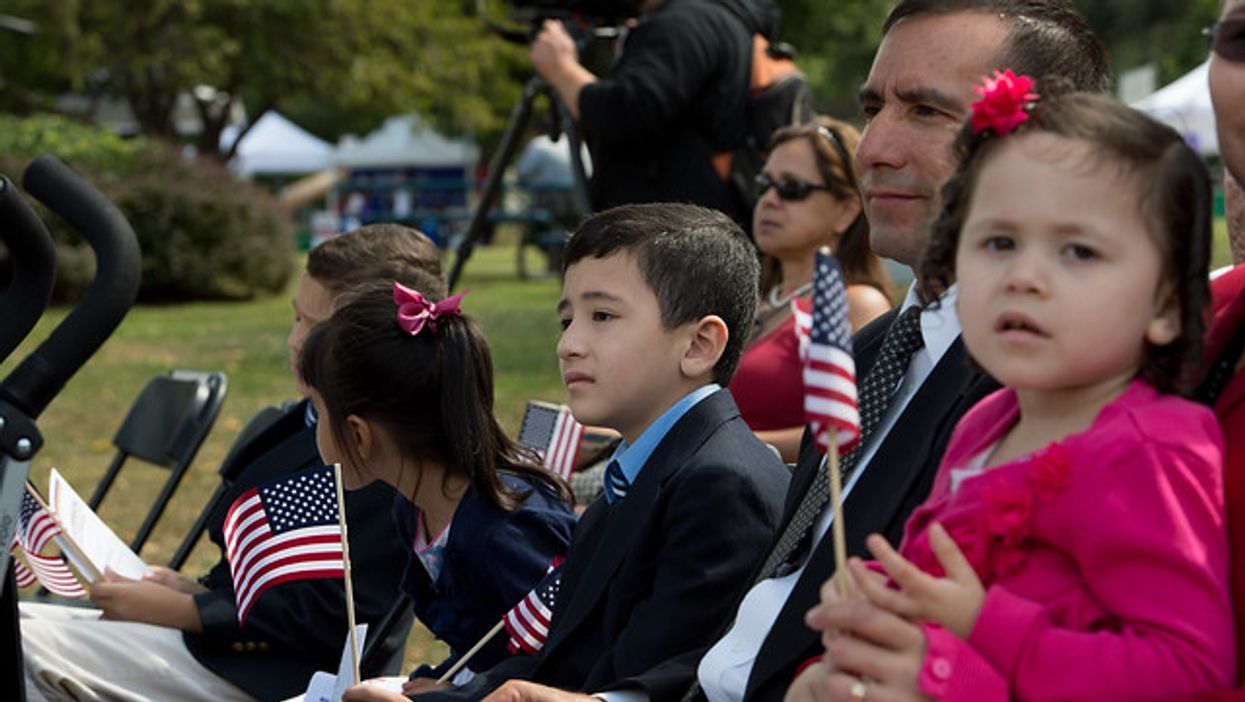Gallup Survey Suggests Election Could Mirror Obama Victory In 2008
Democrats have another reason to be optimistic about Tuesday's presidential election after the release of a new Gallup poll.
Gallup, which is considered one of the more reputable polling organizations operating today, doesn't do election horse-race polls of candidates. However, it does measure public opinion in other important ways that could predict how an election may turn out. On Thursday, Gallup released a series of polls exploring voter enthusiasm among supporters of both major parties and compared it to voter enthusiasm in past election cycles. The organization also gauged at how effective each campaign was at voter outreach.
In its most recent survey, Gallup asked voters: "Compared to previous elections, are you more enthusiastic than usual about voting, or less enthusiastic?" The share of Democratic voters who said they were "more enthusiastic" was at 77 percent, whereas the share of Republicans who answered the same way was just 67 percent.
When comparing the 2024 result to past elections, Democrats in particular are even more motivated to vote in 2024 than they were in 2008, where 76 percent of Democratic respondents said they were "more enthusiastic." Republicans are also registering more enthusiasm in 2024 than in 2008, though that margin is smaller: In 2008, 61 percent of Republican voters were more excited to vote, whereas that share climbs slightly to 67 percent in 2024.
An additional notable metric from Gallup's survey found that while Republican voter enthusiasm was at roughly the same level this year as it was in 2020 (66 percent four years ago compared to 67 percent today), Harris is seeing a higher share of enthusiasm from her base than President Joe Biden had, as Biden registered at 75 percent compared to her 77 percent.
"Since Gallup first asked the question in 2000, the enthusiasm measure has shown a mixed relationship with presidential election outcomes. Democratic enthusiasm advantages in 2008 and 2020 preceded party wins, while a Republican advantage in 2012 came in a year their party lost," Gallup's Jeffrey M. Jones wrote. "Republicans also had a lead in 2000, when George W. Bush won the election in the Electoral College. In other years, no party had an obvious advantage in enthusiasm."
Alejandra Caraballo, who is a Harvard Law School clinical instructor at the university's Cyberlaw Clinic, posted the Gallup poll on the social media platform Bluesky on Thursday. She opined that Harris is being underestimated by current polls, as she believes pollsters are consistently under-sampling women voter turnout in November.
"I fully expect her to win by four and I'll take the over," Caraballo wrote. "The polls are seriously missing something along gender lines and it's distorting the results. I've dug into crosstabs on state level polling and gender is completely off."
"The gender breakdown makes absolutely no sense," she continued, referencing a recent YouGov/CES poll. "Kamala doesn't win women in any age group. But Biden won women by nine and they made up 56 percent of the electorate. They even have young men being more Democratic than young women."
Reprinted with permission from Alternet.












